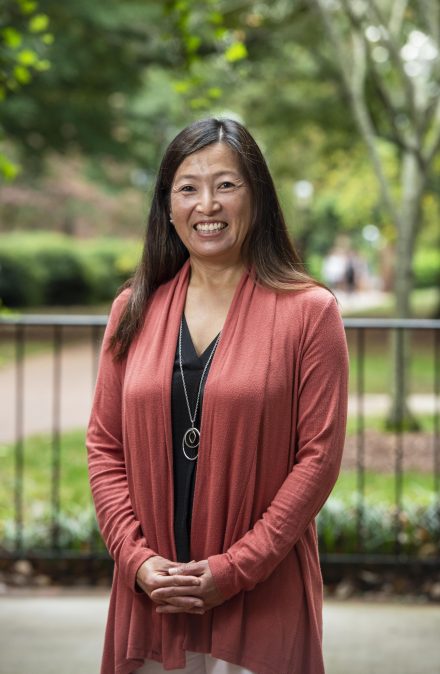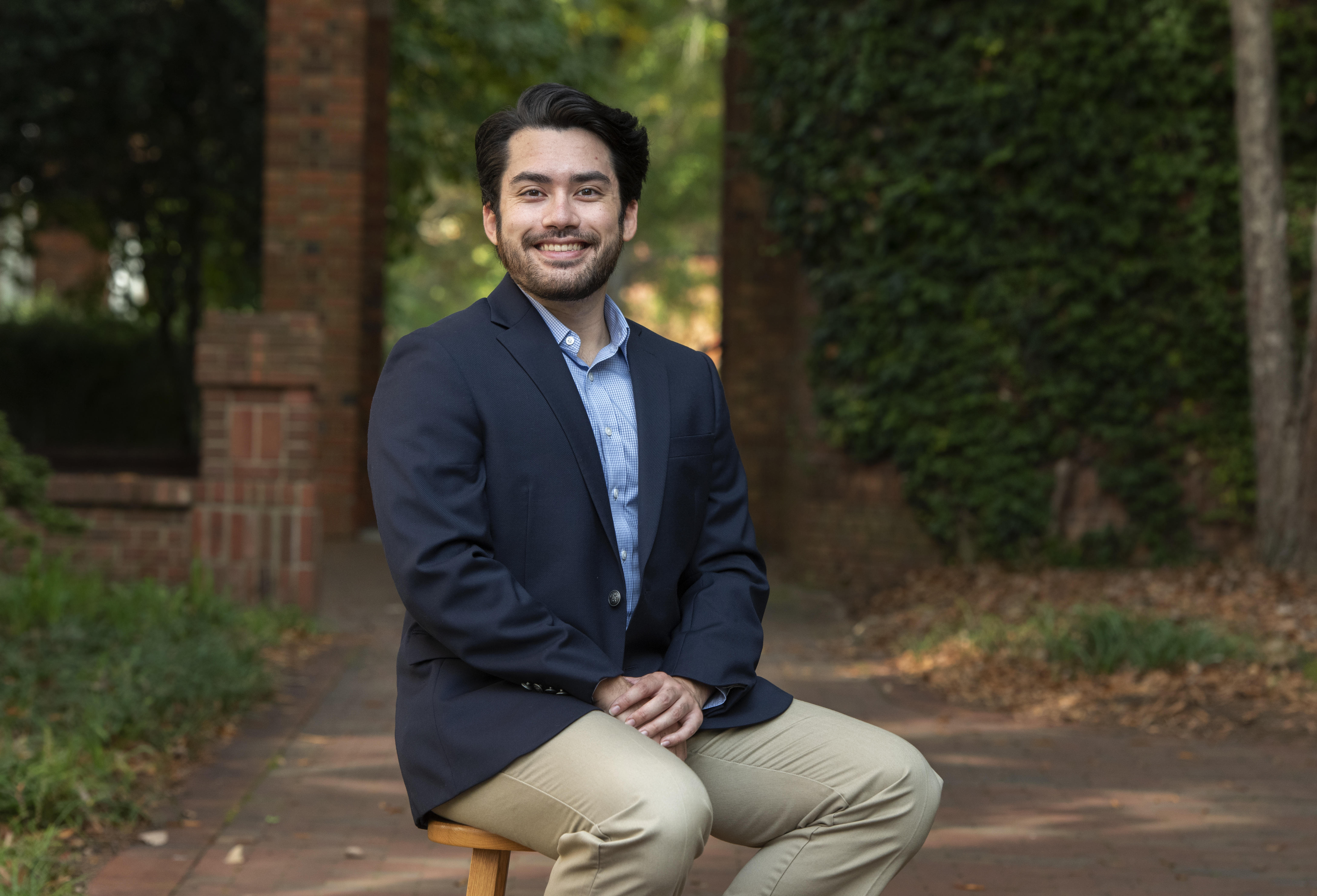Biochemistry major Kevin Scott ’21, under the mentorship of Associate Professor of Biology Yuko Miyamoto, is studying the molecular relationship between a high-salt diet and HER2-positive gastric cancer as part of his Lumen Prize research.
Kevin Scott ’21 learned all too early about the pain of loss. His uncle, who Scott credits with the marriage of his parents and therefore his own life, died from cancer months before Scott was born. Today, the Elon senior is honoring the memory of his uncle and the lives of those still battling cancer through research.
“The idea of doing cancer research in a way that might be able to extend someone’s life, so someone in a similar situation can have the chance to meet their own uncle, I think that’s what makes it all worth it,” Scott said.
The biochemistry major knew he wanted to focus his time at Elon on undergraduate research, so he applied to become an Elon Honors Fellow. The program allowed him to pursue exciting research and take challenging courses under the guidance of strong faculty mentors. It was in his Honors Fellows work that Scott learned about an opportunity to become further immersed in his research experience.
Scott began his pursuit of the Lumen Prize, the university’s most prestigious award for undergraduate research. The Lumen Prize awards scholars a $20,000 scholarship to support a chosen research project, and gives them the opportunity to work closely with a faculty mentor on that project for two years. Each year, 15 rising juniors are named Lumen Scholars and conduct research that often produces conference presentations and publications.
Lumen Scholar applicants prepare a research proposal to be submitted and presented to a committee of faculty from across the campus community. With Associate Professor of Biology Yuko Miyamoto as his faculty mentor, Scott began to construct a proposal that had a great deal of personal meaning to him.
“I’d always wanted to be able to combine my upbringing in the U.S. with my connections in Japan to see if I can do some kind of international cancer research someday,” he said.
Scott, whose mother is Japanese, was born in Japan, wanted to examine the prevalence of certain forms of the disease in East Asia and how that prevalence might be the result of lifestyles in the region. He focused his research specifically on gastric cancer, one of the leading causes of cancer deaths worldwide and a form of cancer often found in East Asia.
The focal point of Scott’s research project was the HER2 protein, which is often over-expressed in gastric cancer. Scott set out to better understand how the HER2 protein might be impacted by the high-salt diets found commonly in East Asia. He hoped to find a correlation between salt intake, the prominence of the HER2 protein, and the strength of gastric cancer cells.

Scott’s proposal proved he had the plan and the passion to carry out his research, and he was named one of 15 members of the 2019 class of Lumen Scholars. He moved forward in his research with the support of the Lumen Prize scholarship and Miyamoto, who has done extensive work in immunology, molecular and cell biology, and cancer biology.
“I often think about what would have been the difference if I’d gone to a larger state school instead of Elon,” Scott said. “And one of the major differences is that I get to have this one-on-one interaction and connection with Dr. Miyamoto to guide me through this research project that, otherwise, I don’t know where it would be.”
The partnership has not only been successful because of their shared Japanese heritage, but also because Scott and Miyamoto’s connection spans longer than a decade. Scott was just 8 years old when he first met Miyamoto. The encounter happened at a popular Japanese market in Cary, North Carolina, where Scott often visited with his mother and father, Elon Associate Professor of Journalism Glenn Scott. Years later, the two reconnected when Scott was a first-year student at Elon.
“I never would have expected this,” Miyamoto said. “I remember Dr. Izzo saying ‘you should meet Kevin since your research matches his interest, and you’ll really like him,’ not knowing that Kevin was who I had met so long ago.”
Whether connecting over their favorite market, swapping stories about Japanese food or uncovering answers in a complex research topic, Scott and Miyamoto have learned to work well together over the years. Miyamoto considers herself the “bowling bumpers” that help keep Scott on track as he carries out his research. And through this experience, she’s had the opportunity to see the senior grow as a student and scholar, grasping complicated literature and thriving in the face of adversity.
“There are so many unanticipated things that you cannot control in research, and so it takes a certain kind of personality to handle it,” Miyamoto said. “I think Kevin’s done a really good job of dealing with that.”
Scott’s most difficult challenges have come in the form of COVID-19 safety protocols. Fewer opportunities to get into the lab have equated to months of lost time in his research. Despite these uncontrollable obstacles, Scott has persevered in his work and even submitted a review paper covering HER2-positive gastric cancer, which will help future researchers in theirs studies of the disease.
“We’re not going to solve all the world’s problems before Kevin graduates, but it’s nice to see the incremental steps like this that we’re building within the scientific community to do our part,” she said.
During a recent study abroad experience in Japan, Scott presented his research to an international audience at an undergraduate research conference. He is currently preparing to share his work at the National Conference on Undergraduate Research in April. In the meantime, he’s beginning to consider life after Elon and his dream of one day becoming a principal investigator in a cancer research lab.
Although he realizes his work in the study of cancer is just beginning, he hopes his Lumen Prize research at Elon can make an impact in ongoing efforts around the world.
“To do an undergraduate research project on cancer has been so exciting,” he said. “It’s great to feel like I can contribute in some way.”



